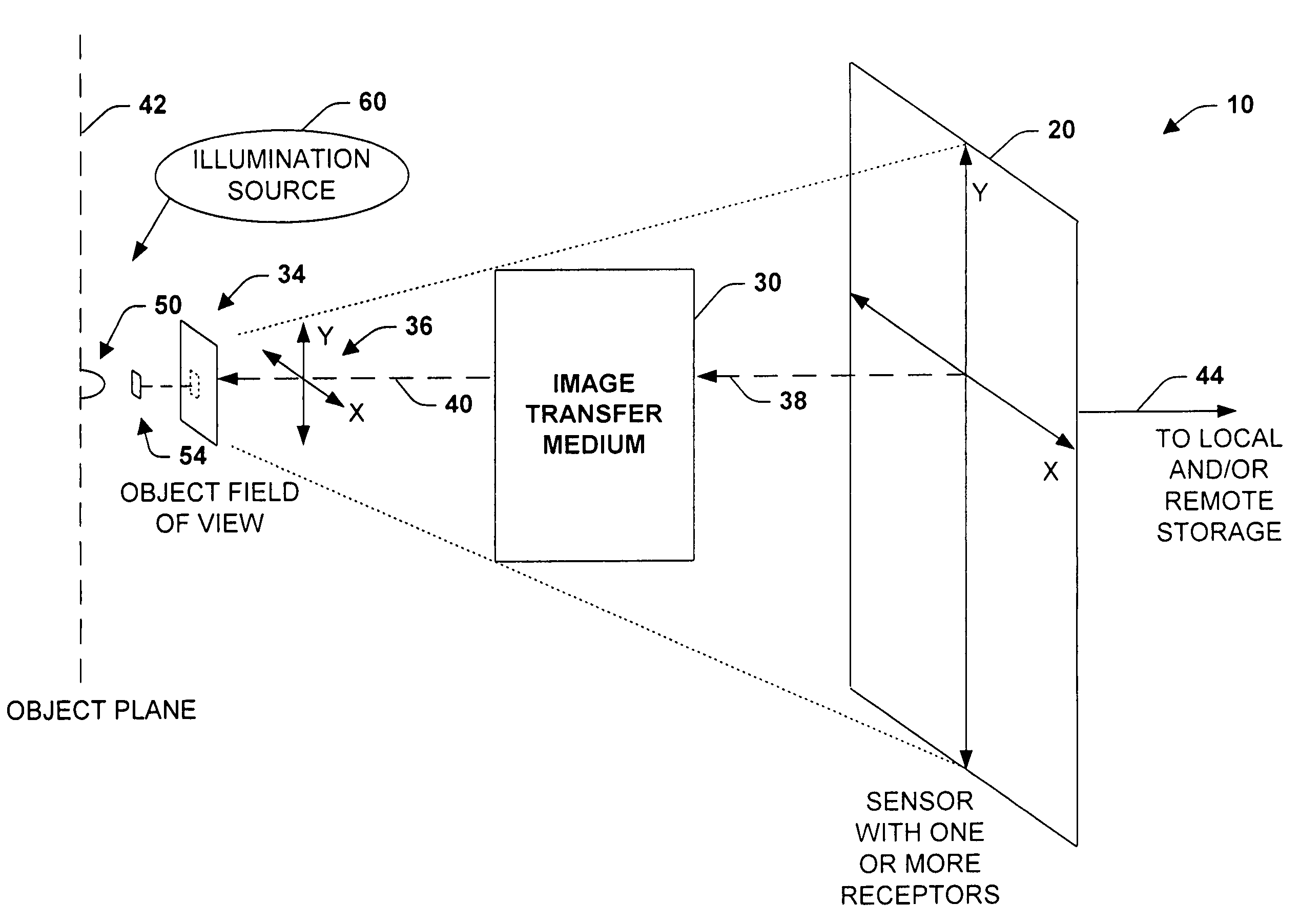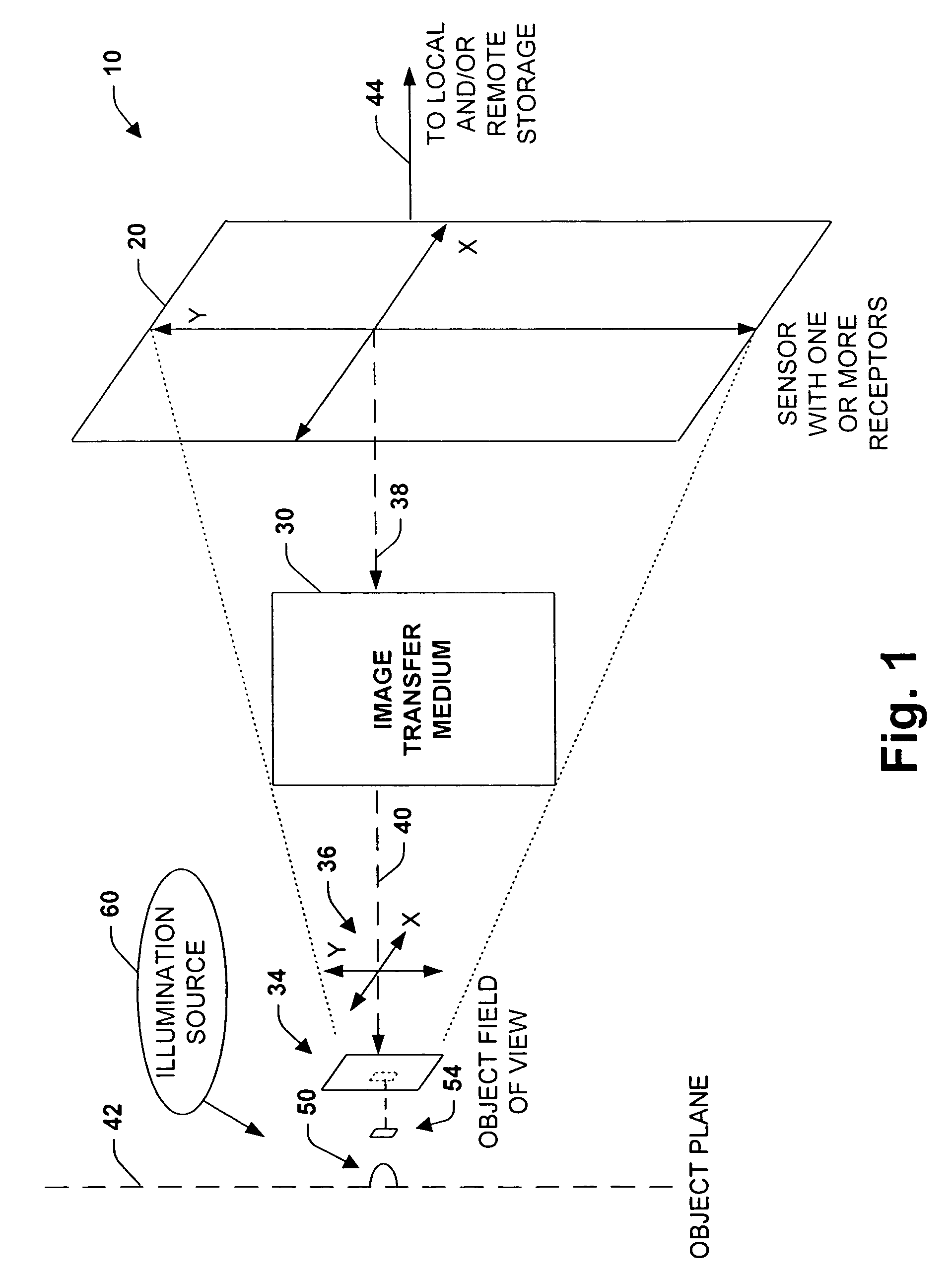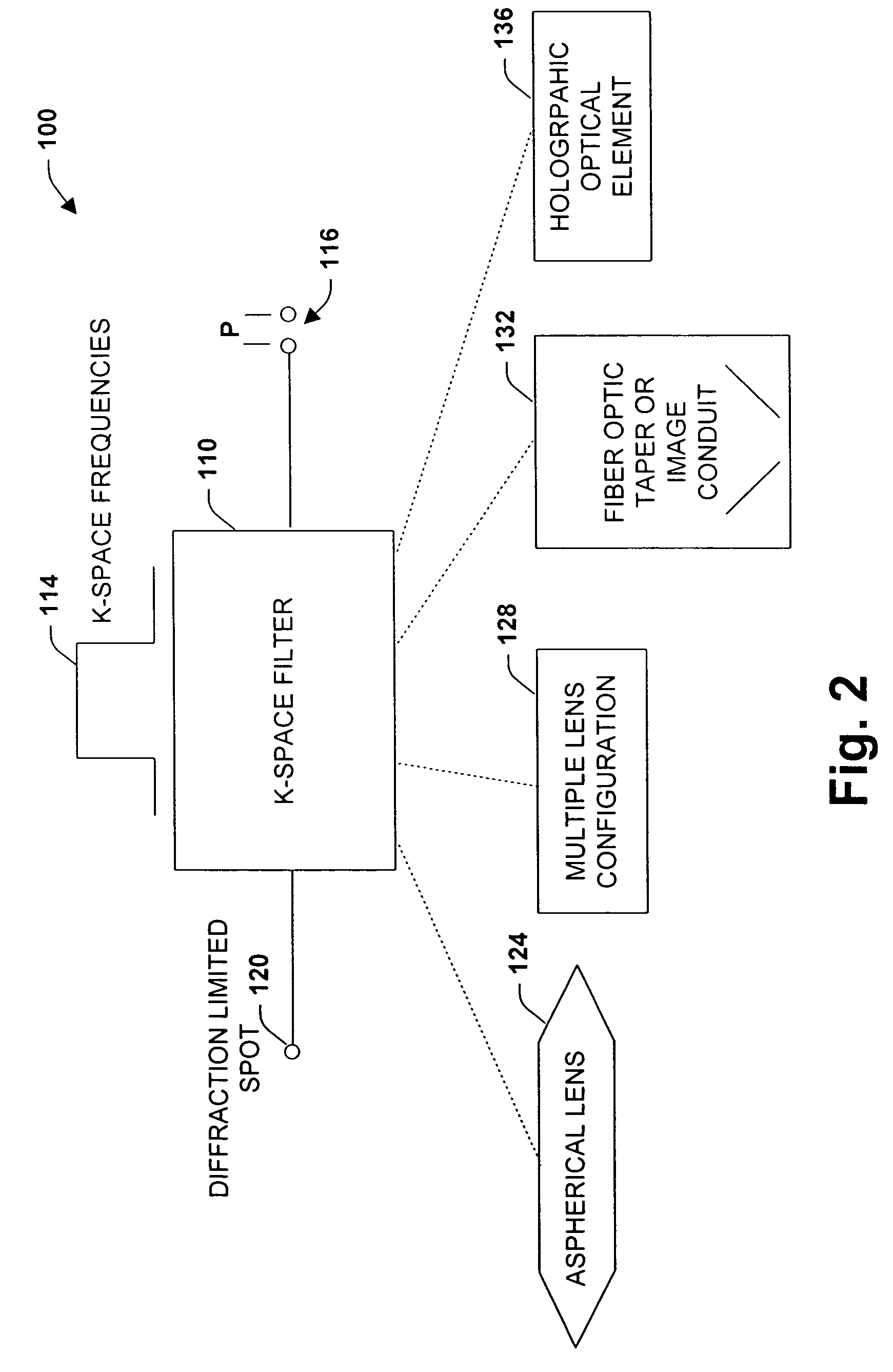Particle analyzing system and methodology
a particle analysis and particle technology, applied in the field of image and optical systems, can solve the problems of difficulty in viewing images on the monitor, the display of machine-vision or computer-based image displays of the above image sensors on the monitor or other output display devices is not of quality perceived by the human observer through the eyepiece, etc., to facilitate the imaging performance of optical imaging systems, increase the effective resolution of magnification, and increase the working distance
- Summary
- Abstract
- Description
- Claims
- Application Information
AI Technical Summary
Benefits of technology
Problems solved by technology
Method used
Image
Examples
Embodiment Construction
[0032]The present invention relates to an optical and / or imaging system and methodology. According to one aspect of the present invention, a k-space filter is provided that can be configured from an image transfer medium such as optical media that correlates image sensor receptors to an optical or image transfer medium. A variety of illumination sources can also be employed to achieve one or more operational goals and for versatility of application. The k-space design of the imaging system of the present invention promotes capture and analysis (e.g., automated and / or manual) of images having a high Field Of View (FOV) at substantially high Effective Resolved Magnification as compared to conventional systems. This can include employing a small Numerical Aperture (NA) associated with lower magnification objective lenses to achieve very high Effective Resolved Magnification. As a consequence, images having a substantially large Depth Of Field (DOF) at very high Effective Resolved Magni...
PUM
| Property | Measurement | Unit |
|---|---|---|
| wavelength range | aaaaa | aaaaa |
| Working Distance | aaaaa | aaaaa |
| Working Distance | aaaaa | aaaaa |
Abstract
Description
Claims
Application Information
 Login to View More
Login to View More - R&D
- Intellectual Property
- Life Sciences
- Materials
- Tech Scout
- Unparalleled Data Quality
- Higher Quality Content
- 60% Fewer Hallucinations
Browse by: Latest US Patents, China's latest patents, Technical Efficacy Thesaurus, Application Domain, Technology Topic, Popular Technical Reports.
© 2025 PatSnap. All rights reserved.Legal|Privacy policy|Modern Slavery Act Transparency Statement|Sitemap|About US| Contact US: help@patsnap.com



